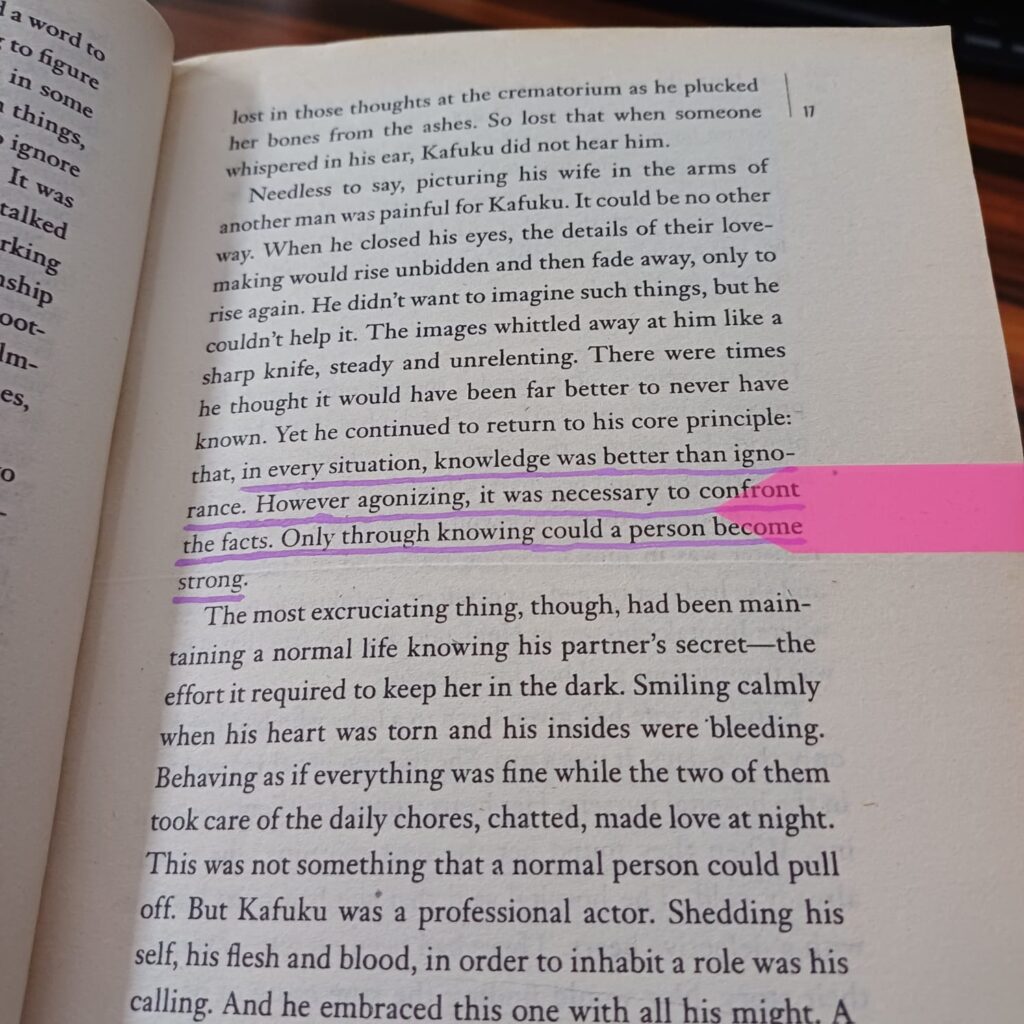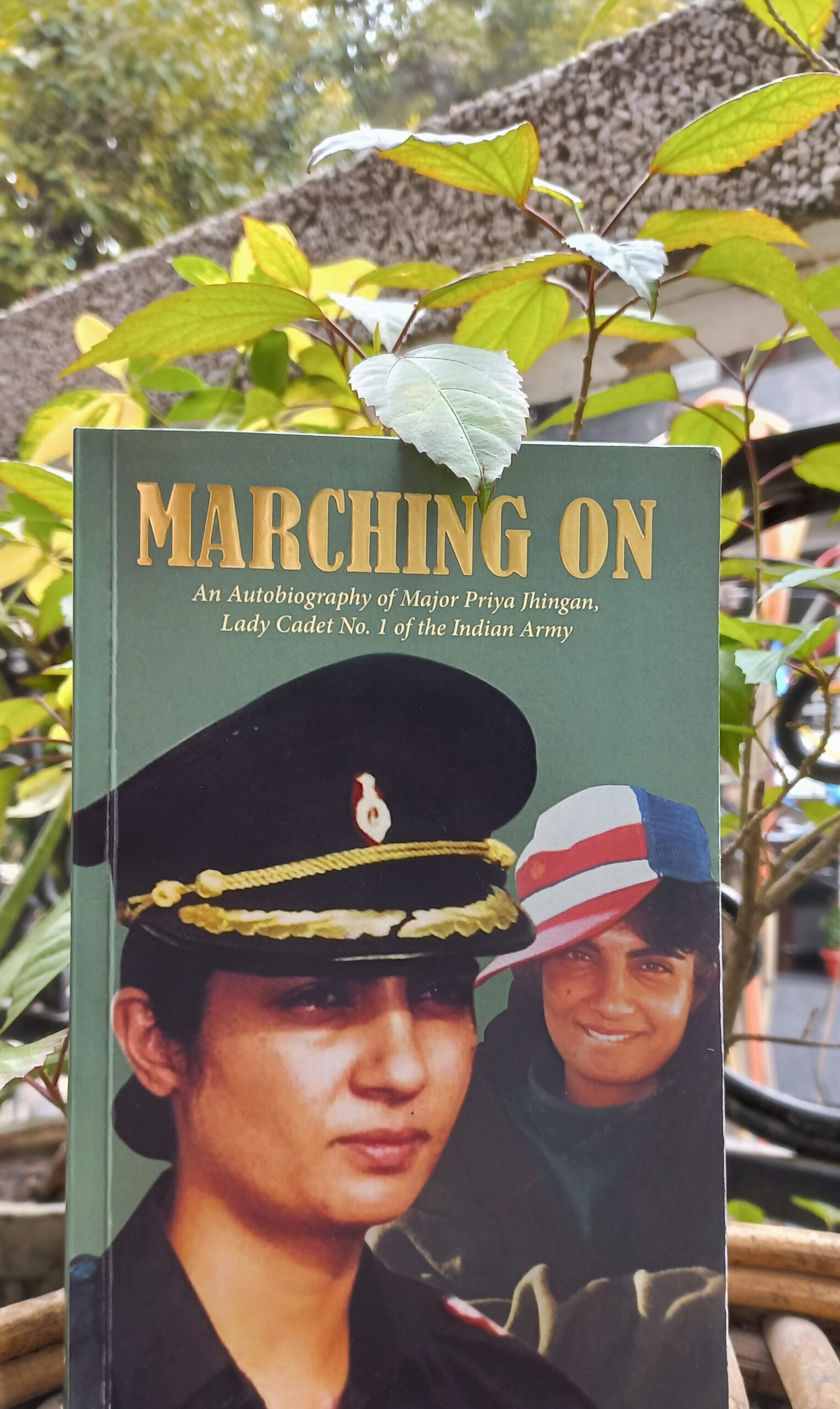Men Without Women, authored by Haruki Murakami, is an anthology of 7 short stories, each with their own unique charm. One story in particular (namely: Yesterday) reminded me of Norwegian Wood. The callback to the Beatles’ song and the university backdrop was especially reminiscent of Toru and his journey.
“You are a pastel-coloured Persian carpet, and loneliness is a Bordeaux wine stain that won’t come out.”
The 7 stories explore loneliness through the lens of men who have lost women, and how they navigate the world through that feeling of loss. The characters’ names and backgrounds may have changed, but the loneliness remained throughout all the stories, transferring to me the moment I finished reading and put the book down.

Reading fiction should be an affair better than the rest, as it must transport us to an imaginary world through mere words, and Murakami does that effortlessly. It’s easy to fall into the world of Murakami’s fictional characters, almost like you’re right there with them. I must admit though, the subtle storytelling sometimes passes right over my head, the predicament best explained in his own words: “It seemed his intention was to leave me stuck somewhere in the middle, dangling between knowledge and ignorance. But why? To get me thinking about something? Like what?”
Indeed, what does Murakami want us to think when we read that line?
Through metaphors, he weaves the story, and there always seems to be a moral, only hitting me days after I read it. “So that’s what he meant!”
“So in the end maybe that’s the challenge: to look inside your own heart as perceptively and seriously as you can and to make peace with what you find there. If we hope to truly see another person, we have to start by looking within ourselves”
Takatsuki, from Drive My Car (Men WIthout Women)
I always see subtle traces of spirituality woven into his writing. Self-reflection and embracing the strangeness of being human are always present in his writing. His writing can seem “strange”, especially works like Kafka on the Shore, and yet it’s impossible to put down, no matter how incomprehensible the plot seems at first.
Although I greatly enjoy his writing, I couldn’t help but notice that his view of women (as depicted in his books) seems like a caricature of tropes. Not quite in a misogynistic way, but rather a “Manic Pixie Dream Girl” kind of way. The character of the woman triggers the salvation of an irrevocably broken man. Truly poetic, but rather unfair in real life, to expect someone to save us from ourselves.
While “Men Without Women” is a terrific read, reading it in one sitting proved too much for me. The loneliness was seeping out of the pages, and it put a damper on my mood. I think I’m too optimistic of a person to fully go along with Murakami’s ideals of perpetual misery. Although I haven’t read all his works, the few that I have always seem to have a trend of unwavering melancholy, something that cannot be overcome and must be carried along like a burden. His writing may be influenced by actual mental illness (Clinical Depression), but I’m referring to the obsession humans have with being miserable.
I don’t believe that misery cannot be overcome. Yes, there is beauty in sadness and it is often romanticized in the literary world. Although beautiful to read about, I cannot imagine living in that state. I might just end up drowning in misery if I don’t pull myself out of it. Not to say that dark themes shouldn’t be explored at all, but there is some inherent danger in the romanticisation of loneliness in real life. (albeit, that is up to the reader’s discretion). Once you actually fall into the depths of despair, it won’t be as easy as flipping a book shut, and snapping out of it.
That being said, I do think the ‘human condition’ is best expressed through the medium of writing, and Murakami does that like no other. There is often great comfort to be found when someone puts into words the ambiguous emotions that we feel, but cannot express.
What do you think of Murakami’s works?




This is a very interesting review, it makes me want to read the book!